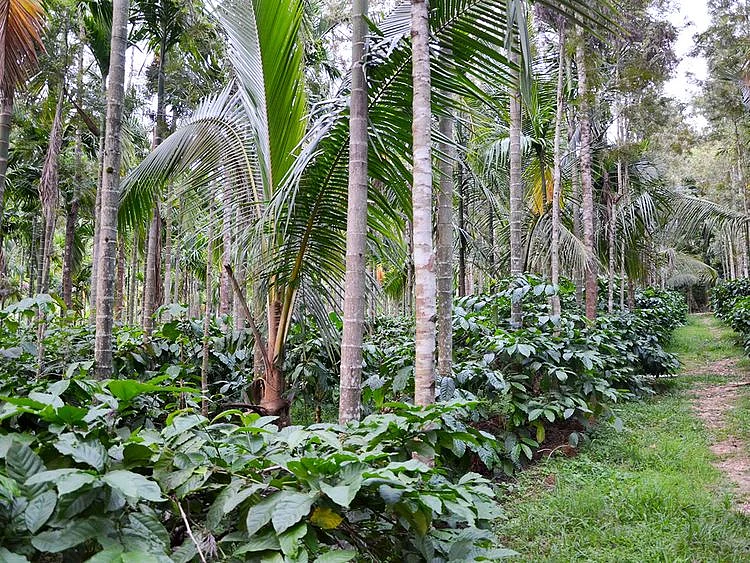How coffee was smuggled into south India
It was said that Sufi monasteries used coffee as an aid to concentration during prayers

After a vista dome train ride to coastal Karnataka state, I decided a quiet getaway to a coffee plantation on a hill station would be a great summer staycation.
The only problem was that the plantation was in Chikmagalur, about 425 kilometres from Bengaluru. It was a good five-hour drive through the “most treacherous terrain with the most ferocious road users” (italics mine).
So I hired a driver for the three days, because my wife refused to let me drive myself, purely for selfish reasons: “If you get injured in a traffic accident, I will have to take care of you,” she said.
I live next door to a plantation, but it has gone wild and only monkeys, snakes and a crazy bird with a screeching voice, inhabit this place, so it was off to Chikmagalur which has been termed as the “birthplace of coffee”, in India.
A hill station is an Indianism for a town at a higher elevation, and obviously much cooler than the plains from which the colonial Brits escaped from, before succumbing to heat stroke, malaria and other exotic ailments.
In the various tea and coffee estates, people still live in the past, and the pace of life, is well, languorous. A friend who runs a coffee plantation and a homestay, said there is a doctor in the area, but not many hospitals, as in the cities such as Bengaluru. That’s because nobody gets ill, what with the fresh air, hard work, and long walks. I even saw a dog eagerly walking, trotting, on a lonely road, most probably going to meet the girlfriend in the nearby estate.
Heavenly and peaceful
The coffee plantation-turned-resort I booked myself in was heavenly and peaceful as I sat on the apartment balcony while the sun slowly set, marking time for Iftar, time to break the fast, after 13-long hours of daytime abstinence from food.
As I reached for my Kindle to delve deeper into Murakami’s intriguing, “Birthday Girl”, the peace and quiet was broken suddenly by the chirping of thousands of crickets and squawking of tons of excited birds coming back to their nests, and then the attack of the mosquitoes started silently.
I noticed that everyone here drank coffee, much like Canadians with their fav ‘double-double’ (two creams and two sugars), and the only thing missing was Tim Hortons Timbits.
The coffee grown here is called Coffee Arabica and I wondered why. I Goggled it and found that Chikmagalur is the place where coffee came to India first, and the story as to how, is crazy.
The man who brought coffee here was a Muslim pilgrim, known as Baba Budan, and is now revered as a Sufi saint. He apparently stopped at the Yemeni city of Al-Mokah (Mocha) on his way to Makkah, and smuggled out seven coffee beans, taped to his stomach.
The Ottoman connection
The Ottoman Empire had realised the immense wealth from these beans and carefully guarded the plantations and boiled the beans marked for export, so that it would not germinate when taken out of the country, or they partially roasted them.
It was said that Sufi monasteries used coffee as an aid to concentration during prayers.
Baba Budan arrived here and planted the seeds in Chikamangla, now known as Chikmangalur.
Drive around on MG Road (Mahatma Gandhi Road) in Chikmagalur, and every third shop sells roasted coffee powder.
I found a pack of Arabica, blended with chicory. This plant leaves when ground and mixed in coffee reduces its bitterness and enhances its flavour. (I learnt this from my Tamilian friends back in my hometown Hyderabad).
Very sadly, coffee may be one of the plants that will vanish due to climate crisis in the near future. Already, production was halved just two years ago in India due to lack of rains, or flooding.
I bought a stainless steel contraption on my way back to Bengaluru, something that works on the same principle as a French Coffee Press, and it makes heavenly filter “kappi” and the coffee goes great with crispy doughnuts (vada), on a bleak rainy morning, or after breaking fast.
Mahmood Saberi is a storyteller and blogger based in Bengaluru, India. Twitter: @mahmood_saberi
Sign up for the Daily Briefing
Get the latest news and updates straight to your inbox
Network Links
GN StoreDownload our app
© Al Nisr Publishing LLC 2026. All rights reserved.